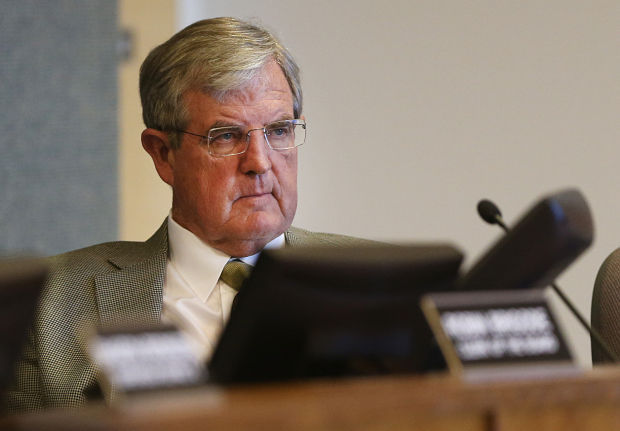With a 2-2 vote Tuesday morning, the Pima County Board of Supervisors failed to pass a tentative $1.23 billion budget for the coming fiscal year.
The vote came after sometimes heated exchanges between Supervisor Ally Miller, who is opposed to the plan and wants to see spending cuts, and her colleagues.
Supervisor Ramón Valadez, who missed the vote due to illness, told the Star after the meeting that he also has “concerns of further increasing the (tax) rate, especially in that magnitude when the economic recovery that much of the rest of the country has seen hasn’t materialized locally.”
The tentative budget, which sets a spending ceiling for the final budget, includes a combined property tax increase of 12.3 cents for every $100 of assessed value. For a home valued at $158,633, which the county considers the average taxable value, the increase spells a $19.51 annual jump.
Though property values have increased over the last year, County Administrator Chuck Huckelberry has told the board that increases are necessary to make up for sizable state cost shifts to the county.
However, a court ruling Monday may reduce the size of those cost shifts, making the primary tax hike unnecessary, Huckelberry told the Star on Tuesday. (See story on Page A1)
The tie vote means consideration of the tentative budget will be pushed to June 7, and consideration of the final budget will also likely be delayed until July 5, instead of June 21, according to Huckelberry.
He said Aug. 15 is the date by which final budgets must be adopted, and that there is nothing “magic” about approving them before July 1.
The board did approve tentative budgets for the county’s flood control district, library district, a number of improvement districts, the stadium district and debt service. Their final budgets are still slated to be approved by the board June 21.
Before voting to approve the tentative budget, Supervisor Sharon Bronson said she was “struggling” with it, pointing to job losses in her district.
In response, Supervisor Richard Elías said he understood those concerns, but argued that approving the plan doesn’t commit the board to it.
Miller lambasted the budget, criticizing it for funding more employees, upping the primary tax rate and being full of what she feels is unnecessary spending, like recent support for World View Enterprises.
“It’s why we’re stuck in a no-growth economy,” she said, shortly before she and Bronson had a sharp exchange.
“What you offer is not a solution,” Bronson responded. “It is simply rhetoric and it provides no reasonable solution to the challenges we face.”






